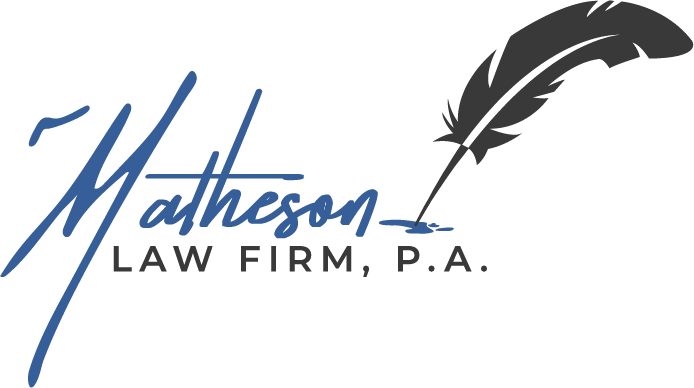Legal Steps To Take Before Buying or Selling a Home This Spring in North Carolina

Spring is one of the busiest times for the North Carolina real estate market. Whether you’re buying or selling a home, proper legal preparation is critical to ensuring a smooth transaction and avoiding costly mistakes. Understanding the legal steps from contracts to closing will protect your investment and help you avoid potential pitfalls.
In this guide, the real estate attorneys at Matheson Law Firm, P.A., walk you through the buying and selling process in North Carolina step by step to help you understand what’s involved and ensure a seamless real estate transaction.
Legal Steps for Homebuyers
Buying a home is a major financial and legal commitment. Before signing on the dotted line, take these essential legal steps to protect your interests:
Pre-Approval & Budgeting
Before you start house hunting, obtaining mortgage pre-approval is essential. A pre-approval letter strengthens your position as a buyer, demonstrating to sellers that you’re financially prepared to make an offer. It also helps you establish a clear budget, ensuring you only consider homes you can realistically afford.
Hiring a Real Estate Attorney
Real estate attorneys in North Carolina play a key role in property transactions. An attorney ensures that all legal aspects of the purchase comply with state laws, reviews contracts for potential issues, and protects your interests throughout the process. Having a legal expert on your side can prevent costly mistakes and disputes.
Understanding Purchase Contracts & Disclosures
A purchase contract is more than just an agreement — it outlines the terms and conditions of your home purchase. Key elements include:
- Earnest money deposit: A good-faith deposit showing commitment to the purchase.
- Contingencies: Conditions must be met before the sale can proceed (i.e., financing, inspections, appraisal, etc.).
- Deadlines: Important timeframes for inspections, repairs, and closing processes.
North Carolina law also requires sellers to provide property disclosures, informing buyers of known defects or issues. Understanding these documents is critical for making an informed decision.
Title Search & Title Insurance
A title search ensures that the seller has clear ownership of the property and that there are no outstanding liens or legal issues. Title insurance offers additional protection by covering future claims or disputes over ownership rights. These steps are vital to preventing unexpected complications after purchasing your home.
Closing Process
The final step in buying a home is the closing process, where ownership is officially transferred. This involves:
- A final walkthrough will be conducted to ensure the property is in the agreed-upon condition.
- Funds are transferred for the down payment and closing costs.
- Legal documents are signed, including the deed and mortgage agreement.
A real estate attorney will oversee the closing, ensuring that all documents are legally sound and the property transfer is completed correctly.
Legal Steps for Home Sellers
Selling a home in North Carolina also requires careful legal preparation. As a seller, you should take these steps to ensure a stress-free transaction:
- Property preparation and disclosure: North Carolina law requires sellers to provide disclosure statements about the property’s condition, including known defects or issues that may affect the home’s value.
- Reviewing and negotiating offers: A real estate attorney can help you evaluate offers, identify potential red flags, and negotiate terms that best protect your interests.
- Deed preparation and transfer: There are different types of deeds (i.e., warranty deed, quitclaim deed, etc.), each with legal implications. Your attorney will help ensure the correct deed is used and properly recorded.
- Closing responsibilities: As the seller, you must coordinate with the buyer’s lender and attorney to ensure all legal documents are signed and funds are properly distributed.
Final Considerations
Real estate transactions can be complex, and legal pitfalls, such as contract disputes, missing paperwork, or title issues, can delay or derail a sale. Working with a qualified real estate attorney in North Carolina is essential to evade costly mistakes.
Whether you’re buying or selling a home this spring, the expert attorneys at Matheson Law Firm can help ensure a seamless, stress-free process in compliance with North Carolina real estate laws.
Contact our team today for expert legal support for your real estate transaction.




